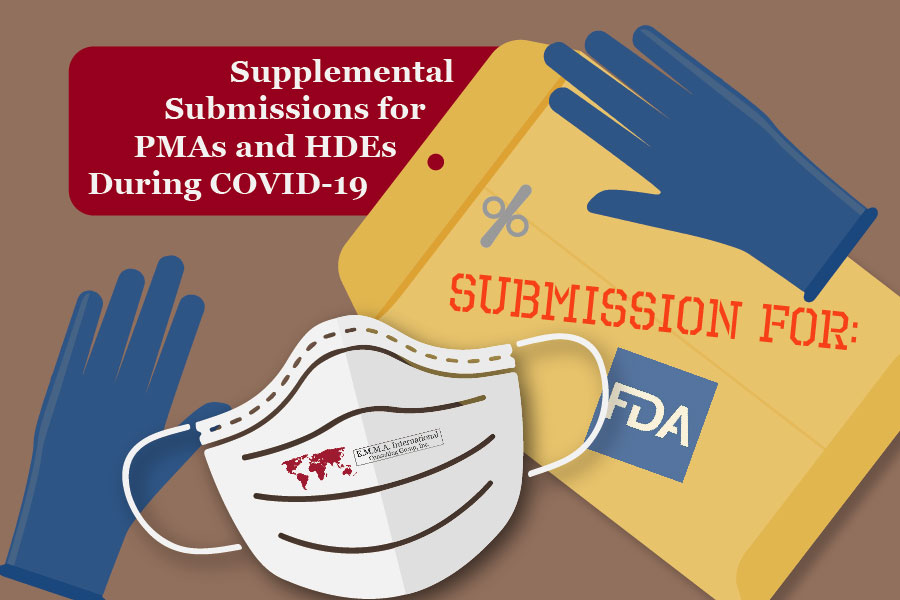FDA has already issued temporary policies on how it regulates PPEs and various other covid-19 essential medical supplies during this public health emergency. On May 21,2020, FDA released another temporary policy that allows manufacturers of devices cleared under a Pre-Market Application or Humanitarian Device Exemptions to make changes to the product that would otherwise require a supplement or 30 day notice to be submitted to the FDA as long as the modification does not create undue risk.1
This policy provides manufacturers with the flexibility if they need to make a change due to the supply chain disruptions the industry is facing and continue their production without having to submit a supplement. Examples of modifications that are included in this policy are:1
- Design and manufacturing changes to address component unavailability due to supply chain disruptions.
- Manufacturing changes to allow the establishment to maintain operations and accommodate social distancing practices.
- Changes in manufacturing facility or establishment to either increase the manufacturing capacity or shift to a manufacturing site that is not affected by Covid-19.
- Changes to packaging procedures
This policy also applies to limited modifications to address current manufacturing limitations or supply chain issues due to COVID-19 that also result in changes to the performance or design specifications, circuits, components, ingredients, or physical layout of the device which would trigger the requirement to submit a 180-day or real-time PMA supplement or a 75-day HDE supplement.1
This policy does not cover any changes that are made to address manufacturing or supply chain issues not stemming from COVID-19 or changes that could add/create undue risk to the users of the device. Examples of such changes include:1
- Changes to the intended use of the device, including new indications for use of the device
- Changes to the labeling of the device, that are outside of the scope of recommendations described in other policies for specific devices during the public health emergency
- Changes to the sterility assurance level (SAL) or sterilization method
- Changes to reduce or eliminate quality control testing
- Automation of a manufacturing process that is not fully verified
- A change that affects the performance of the device, but is not caused by component unavailability
All changes that whether or not included in the scope of this policy must be performed in accordance with 21CFR820 and must be documented in the device master record and the change control record. Manufacturers must submit the records of such modifications whenever the next periodic report is due.1
Need help in bringing your medical device to the market. Call us today at 248-987-4497 or email us at info@emmainternational.com.
1FDA (May 2020) Supplements for Approved Premarket Approval (PMA) or Humanitarian Device Exemption (HDE) Submissions During the Coronavirus Disease 2019 (COVID-19) Public Health Emergency retrieved from 05/26/2020 from https://www.fda.gov/media/138265/download






